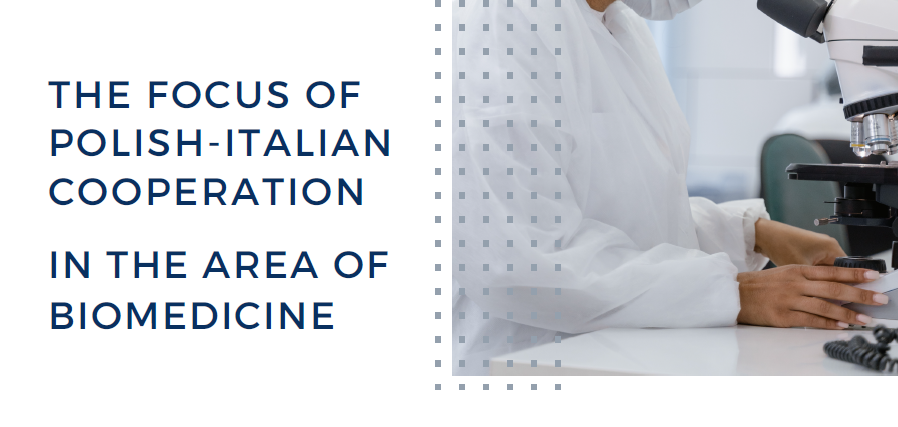
Polish-Italian cooperation in the field of biomedicine
The first conference of the series “Copernicus Dialogues” will take place on 27 October at the Polish Academy of Sciences – Scientific Centre in Rome. The focus of the first event will be Polish-Italian cooperation in the field of biomedicine. The conference is co-organised by the Polish Academy of Sciences (PAN) and the Research Council of Italy (CNR) with a strategic partnership of one of PAN research institutes. Participants of the event will discuss topics such as chronic pain and its treatment, pharmacology of brain diseases, protein corona and other areas of biomedicine important for our daily well-being. All stakeholders interested in the field of life sciences, health and biomedicine are welcome to join.
Please find attached a full agenda of the meeting, including speakers. You may register to participate via the registration form: https://forms.office.com/e/d9zjf5ngGY
The meeting will be an occasion to meet researchers from Poland and Italy, discuss relevant scientific questions as well as possibly engage in future collaborative research. PolSCA Office in Brussels will be there too, providing concise information on joint research funding opportunities of the Horizon Europe.
- 27/10/2023 - 09:30 - 27/10/2023 - 17:00
-
Polish Academy of Sciences - Scientific Centre in Rome
Vicolo Doria 2
00187 Rome RM
Italy - Ewa Chomicz
-
Member
-
Working Group
City of Ostend (Belgium) requests to join a project application/consortium for LIFE-2023-CET-ENERPOV call
- Simon De Wachter
- 09/10/2023
-
Funding Programme
-
Deadline for Expression of Interest16 November 2023
-
NameSam LanckrietOrganisation NameCity of Ostend
- Get in Touch
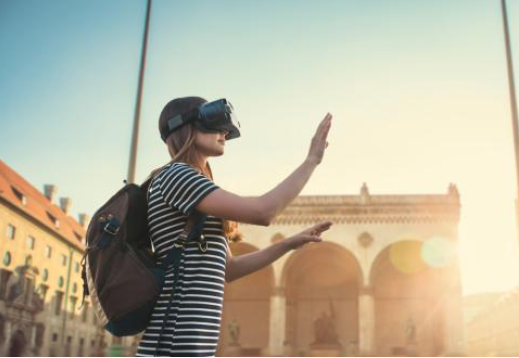
Digital Europe Programme: Commission opens calls to invest in data spaces for tourism and cultural heritage
Last week, the European Commission opened new calls for proposals under the 2023-2024 Work Programmes of the Digital Europe Programme to strengthen digital capacities across the EU. The calls are open to businesses, public administrations, and other entities from the EU Member States, EFTA/EEA countries, and associated countries. Over €12 million has been allocated for projects under these calls focusing on continuing support for the creation of data spaces, a cornerstone of the EU data strategy.
- These Digital Europe Programme calls will see €8 million in grants for projects and follow the Commission’s recent communication on the building blocks for a common European tourism data space. The European tourism data space is a key deliverable of the tourism transition pathway, making the tourism ecosystem more resilient, digital and sustainable. The data space will boost data-sharing among tourism businesses, destinations and public authorities, which will have an impact on productivity, greening and sustainability, innovative business models and upskilling. This will help tourist destinations understand what tourists are looking for and tailor their offerings accordingly, predict when tourists are likely to come, and allow destinations to plan.
- There will also be a further planned investment of €4 million for the deployment of a data space for cultural heritage. This will make more high-quality European cultural content available, particularly in 3D, foster the reuse of digitised cultural resources and provide more opportunities for the community to offer enriched services, thanks to the use of advanced technologies.
Under the previous Digital Europe 2021-2022 Work Programme, the foundation was laid for the development of 12 data spaces in key areas of public interest. The opening of these Digital Europe programmes calls for proposals under the 2023-2024 Work Programme ensures the continuation of this work, in particular as regards the further deployment of sectorial data spaces. More information as regards applying for grants for these calls for proposals is available online.
Further calls under the 2023-2024 Work Programme will be published later this year.
- Francesca Pozzebon
- 06/10/2023
-
Working Group
Den Kreative Skole, Denmark is looking to develop an Erasmus+ cooperation partnership for the future for Schools for music and performing arts
- 09/10/2023
-
Funding Programme
-
Deadline for Expression of Interest03 November 2023
-
NameLouise Frøkjær CarstensOrganisation NameDen Kreative Skole, Denmark
- Get in Touch

Smart Cities & Bioeconomy WG: Nature Restoration Law - Innovations for the creation of greener cities
The Smart Cities and Bioeconomy Working Groups are organising a meeting on the Nature Restoration Law, taking place on 26 October between 10:00-12:15 CEST. The meeting is hosted by the Cities Northern Netherlands EU Office, located on Rue de Trêves 59-61, 1040 Brussels.
The new Nature Restoration Law, which passed through the European Parliament in July 2023, will present challenges to cities as it proposes ambitious restoration requirements for urban ecosystems. This meeting will discuss some of these challenges while also showcasing innovative solutions. The European Commission will present the current state of play of the Nature Restoration Law and CINEA will introduce funding opportunities for cities and regions to create greener cities. Three ERRIN members will present examples of innovative solutions that urban areas can adopt to fulfil the requirements of the law, with the aim to jointly explore the innovation potential that the new law presents.
The WG leaders invite members and speakers to stay for a networking lunch to continue the discussions and exchanges after the end of the meeting.
The agenda can be found attached.
Thank you to all members for your active participation in the meeting. Please find the presentations attached.
- 26/10/2023 - 10:00 - 26/10/2023 - 12:15
-
House of Dutch Provinces
Rue de Trêves 59-61
1040 Brussels
Belgium - Heidi Johansson
-
Working Group
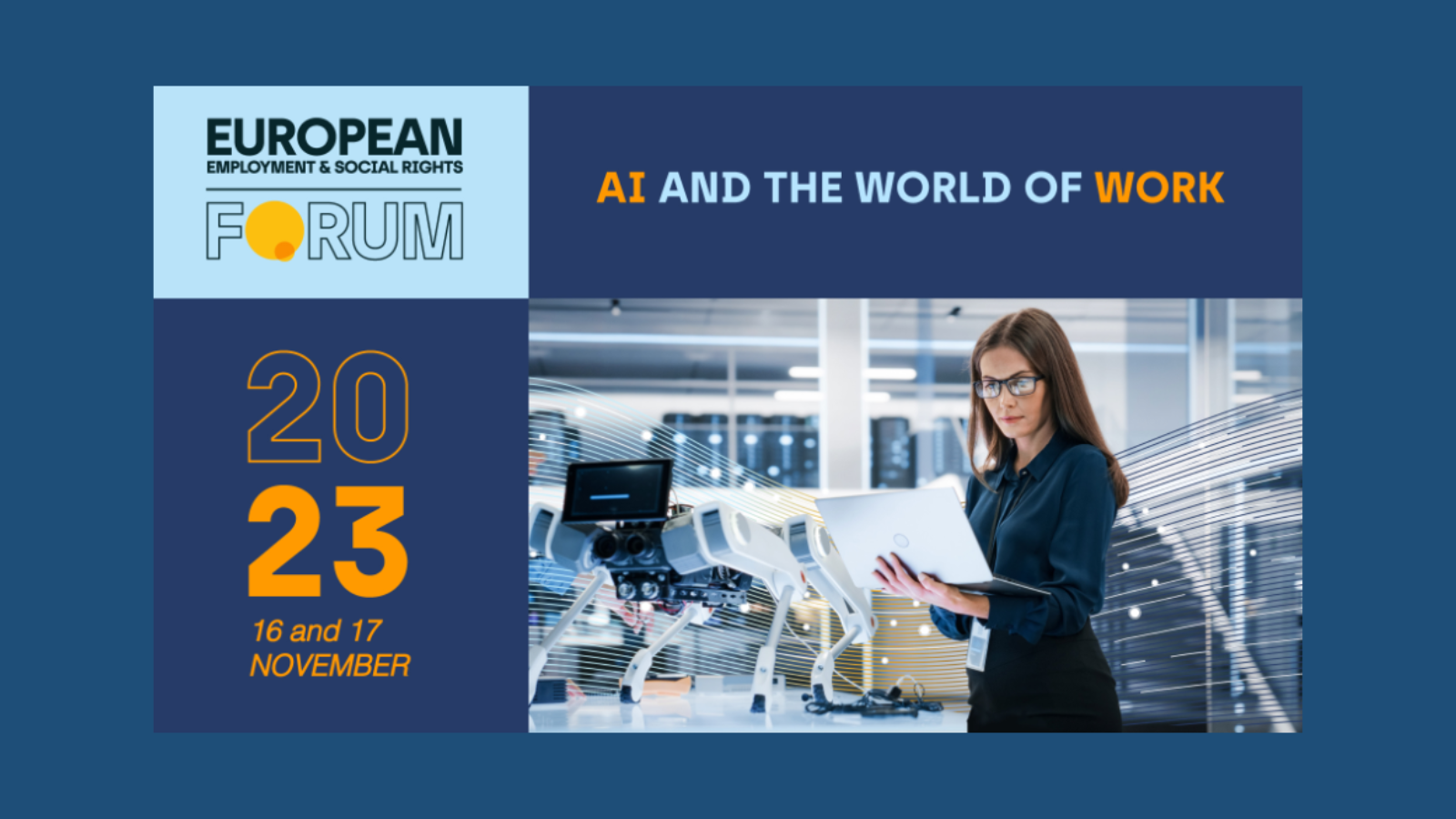
How is Artificial Intelligence shaping work? European Employment & Social Rights Forum 2023
At the second European Employment & Social Rights Forum, a wide range of stakeholders and experts will assess the current challenges and opportunities brought about by artificial intelligence in the world of work. The forum will take place on 16 and 17 November in Brussels.
Rapid technological transformation and new digital technologies bring forth new work opportunities. They create new jobs for people, widen access to education, boost productivity, and improve our efficiency. Yet, these advancements also underscore growing inequality and a lack of transparency across the world. How do we ensure fairness, inclusivity and transparency as we navigate this new world of work?
The theme of this year’s Forum is the impact of artificial intelligence on the world of work.
Rapid technological transformation and new digital technologies bring forth new work opportunities. They create new jobs for people, widen access to education, boost productivity, and improve our efficiency. Yet, these advancements also underscore growing inequality and a lack of transparency across the world. How do we ensure fairness, inclusivity and transparency as we navigate the new world of work?
EU and national policy-makers, Ministers, representatives from the EU institutions and businesses, social partners, civil society, and academics are invited to assess the current challenges and opportunities brought about by artificial intelligence in the world of work.
Please find the full program and the details to register here. You can participate in person or online.
This event sheds light on many aspects of AI in the world of work. The sessions on the role of data and AI at the workplace and the skills-related challenges could be of interest to the ERRIN members in the European Year of Skills, in view of the preparation of a Strategic Research and Innovation Agenda "Future4Work" under action "12. Accelerate the green/digital transition of Europe’s key industrial ecosystems "of the ERA Policy Agenda, followed up by the SEFS Working leaders.
- 16/11/2023 - 13:00 - 17/11/2023 - 17:40
-
The EGG
Barastraat 175
1070 Brussels
Belgium - Astrid Hannes
-
Working Group
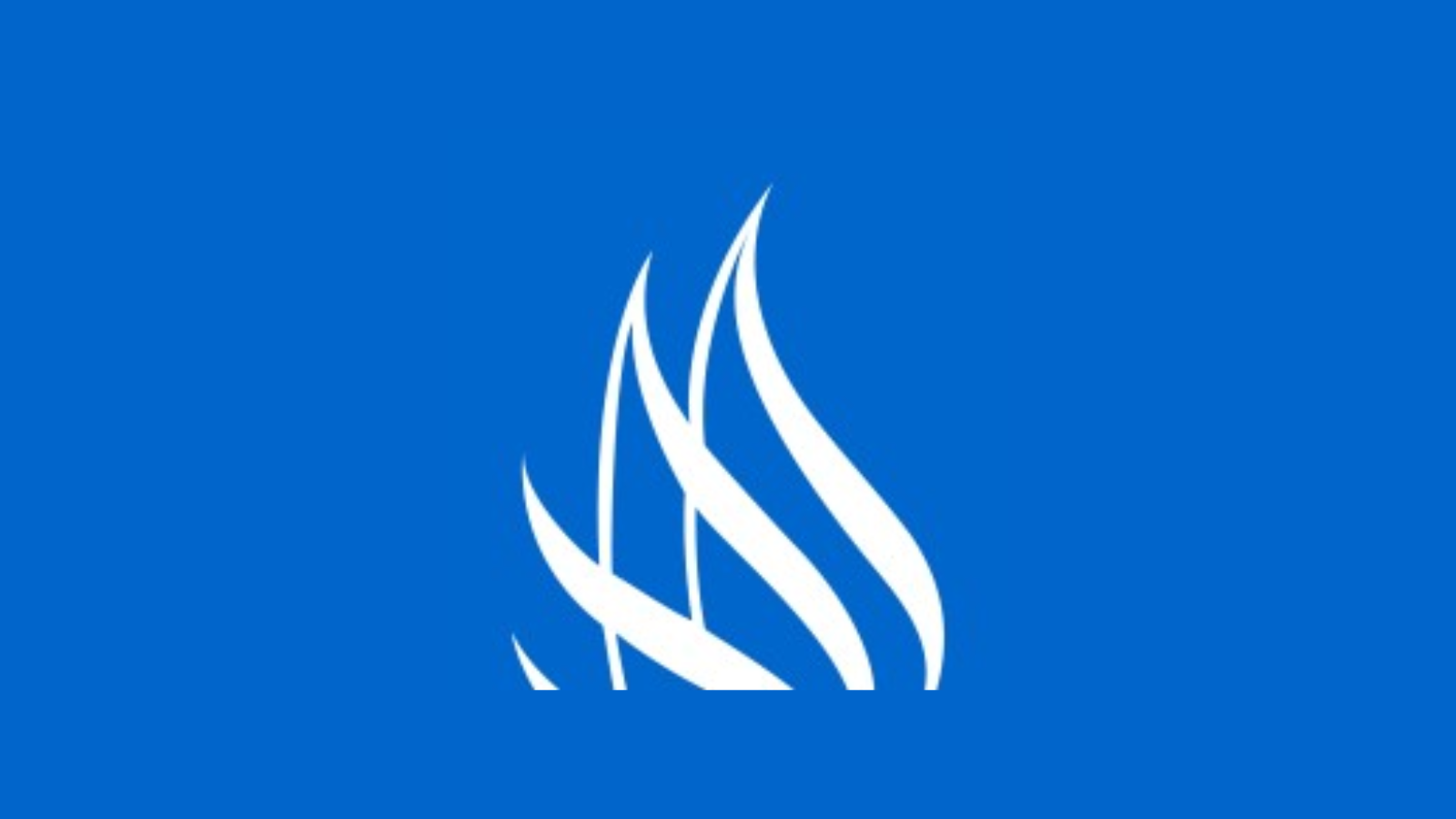
Coventry University’s Data Sciences - virtual open house and research vacancies
Coventry University’s Research Centre for Computational Science and Mathematical Modelling (CSM) is actively looking for talented and passionate individuals to join their research team and contribute to cutting-edge projects that align with our centre’s research vision.
Details on current job opportunities can be found at the following link (additional positions at different seniority levels may be available for suitable candidates).
The deadline for applications is 22nd October 2023.
The posts will support three application areas of strategic importance, in health, energy and security. These Assistant and Associate Professor roles are designed to promote interdisciplinary research in collaboration with other research centres at Coventry University. Candidates should be excellent computer scientists whose research expertise will strengthen CSM, and with relevant skills that would benefit one of the application areas.
As part of our recruitment campaign, the Centre Directors, Dr Matthew England and Prof. James Brusey, are hosting a virtual open house event on Thursday 12 October 2023, 11:30 – 12:00 (UK time), to provide individuals with an opportunity to explore our wide-ranging research and meet our vibrant research community.
Location: Zoom Webinar: https://coventry-ac-uk.zoom.us/j/82097346171?pwd=RUtBcmhLamhZUUo4MzkwM3ZGK1hZdz09
Passcode: ?+407375
We look forward to welcoming you to our virtual open house event on 12 October – no registration is needed.
Interested applicants can also contact our Operations Team at Research.DSET@coventry.ac.uk, or the academic named on the relevant job opportunity, for an informal discussion.
- jessica mitchell
- 05 October 2023
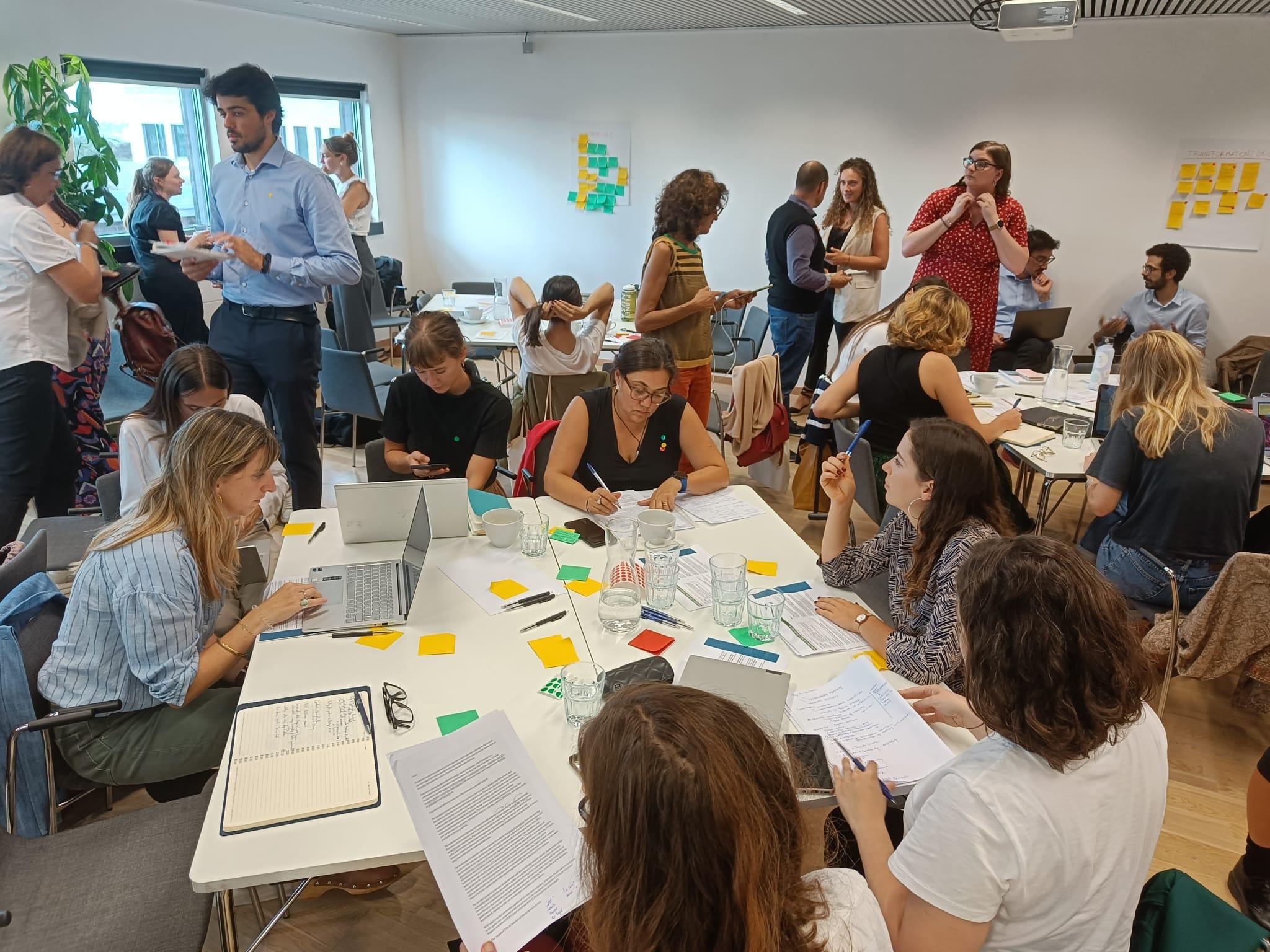
Shape ERRIN's agenda 2024 - Annual Member Survey
In view of the annual strategy workshops that we will organise with all the Working Group (WG) and Task Force (TF) leaders in the second half of November, all members are invited to provide input on priorities, topics, and activities that should be addressed in 2024. This survey will focus on collecting your views on your overall R&I priorities, proposed activities for our 13 Working Group and two Task Forces as well as suggestions on how we could better tailor our support services.
We advise each member to submit one input form per member organisation. Please consult your regional stakeholders and submit one form on behalf of the entire regional ecosystem, offering your ideas and feedback on priorities, topics, and activities for ERRIN in 2024. Your replies will help the Working Group and Task Force leaders and the Secretariat to prepare the network’s activities and services in a way that brings the most value to ERRIN members.
Please provide your input through the form here.
The information collected will be shared with the WG and TF leaders and discussed during the strategy workshops. There will of course be additional opportunities to provide input throughout the year, and you are always welcome to contact WG and TF leaders and the facilitators from the secretariat, but this is a key moment to influence the network’s strategic priorities for the year to come.
- Agnieszka Wieczorek Jetha
- 05/10/2023
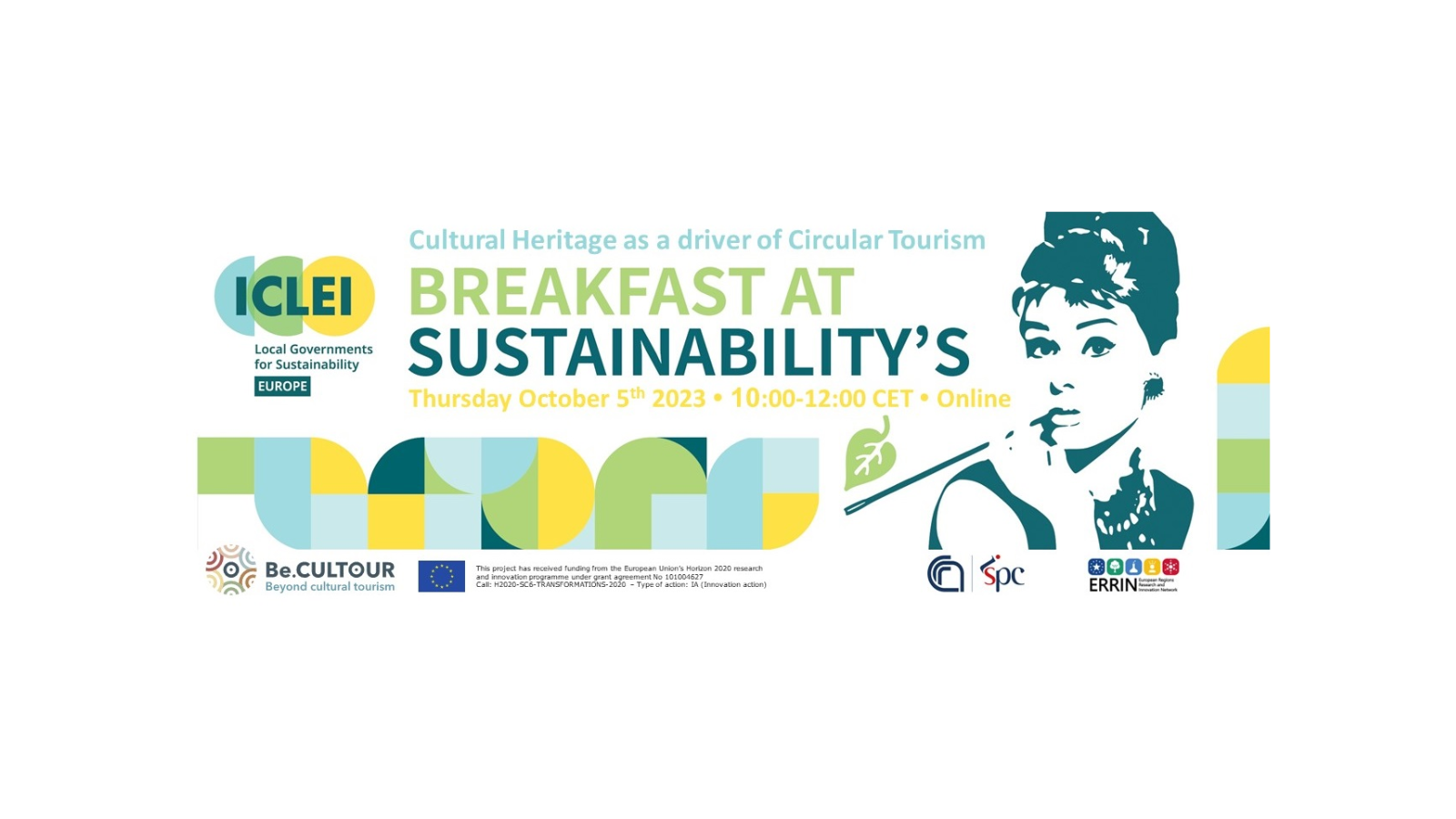
ERRIN members showcase good practices at ICLEI B@S event on circular cultural tourism
What is ‘circular cultural tourism’ and how can it contribute to sustainable tourism development in European regions?
The last edition of ICLEI’s flagship Breakfast at Sustainability’s series took place on 5 October 2023 from 10:00-12:00 CEST , in collaboration with ERRIN and as part of the Be.CULTOUR project, a Horizon Europe project developing heritage innovation networks as drivers of Europeanisation towards a human-centered and circular economy.
On this occasion, ERRIN members had the opportunity to take the stand and showcase inspiring examples of good practices demonstrating how circular approaches to tourism, human-centred destinations, and heritage-led transformations can contribute to building a sustainable future for all.
Among the speakers, ERRIN members from Joy of Culture (Cyprus), Comune di Genova, Liguria region and HAMI, Visit Häme (Finland) presented their challenges, achievements and lessons learned from a rural, municipal and regional perspective.
In particular, Takala Minna, Senior Advisor at the Regional Council of Häme (Finland) introduced the creative approach and innovative actions combining nature, culture, well-being and sports with digital smart services to offer new opportunities, especially for SMEs in the region. She focused in particular on an insteresting case study from the HAME region: Western Lakeland - promoting and coaching local entrepreneurs of the sustainable tourism sector and supporting local SME's transfer towards more sustainable activities.
During the event, ERRIN member Pays de la Loire was also mentioned by Kirsti Ala-Mutka, Policy Officer, DG GROW, as region putting forward the ambitious Tourism Transition Pathway pledge of becoming the top French destination for cycle tourism by 2030, with 100% of their destinations becoming accessible by green means of transport.
This online event managed to bring together key representatives of EU institutions, cultural experts, regional officers, and tourism stakeholders to discuss the unexplored potential of cultural heritage as a driver of circular tourism, explore innovative approaches around Europe and analysed the sector's common challenges and identify potential solutions that can be shared at EU level.
The recording of the event will be soon available on the Be.CULTOUR project youtube channel.
- Francesca Pozzebon
- 05/10/2023
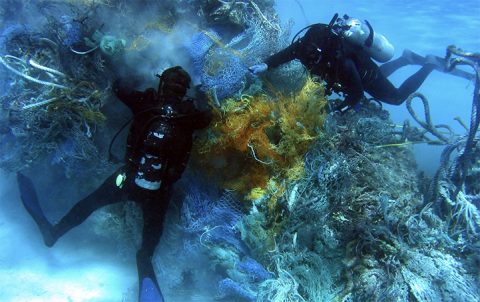
EWCR Side event: Co-creating clean coasts - Breakfast seminar
The Oslo Region European Office and West Norway Office are facilitating a EWRC side event with NTNU Campus Ålesund and their member municipalities Bærum and Ålesund.on Co-creating clean coasts. The event will take place on 10 October from 09:00-11:00, with a light breakfast served from 08:00.
Many municipalities and regions are facing marine pollution. How can we cooperate across sectors to find future solutions? How do we create a cleaner coast and reduce plastic pollution? Can research help us by creating the tools we need to work more efficiently?
These questions are among those you might find answers to in our breakfast seminar Co-creating clean coasts. The event is part of the side events of the European Week of Regions and Cities. In the Norwegian funded DatSam project, a marine litter management toolbox (PlastOPol) has been further developed and deployed to support stakeholder ecosystems in achieving clean coasts. In this session, we present new visualisation technologies and workflows designed to address marine pollution in data-driven, co-creative processes and share experiences from tool deployment in a major cleanup event in Norway. After the project presentation, participants are invited to experiment with various visualisation tools.
Agenda
• 08.30-09.00 Registration and light breakfast
• Keynote speech: Massimo Busuoli, Head of NTNU Brussels office (Norwegian University of Science and Technology)
• DatSam project: Marine pollution - A municipal challenge
• Stakeholder engagement: Co-creation in innovation ecosystems
• The PlastOPol marine litter management toolbox
• Questions and discussion
• Interactive tool session
The Oslo Region European Office and West Norway Office are delighted to facilitate this event together with NTNU Campus Ålesund and our member municipalities Bærum and Ålesund.
Please register here.
We wish you a warm welcome to our breakfast seminar, and hope to see you on October 10 at Norway House!
- 10/10/2023 - 09:00 - 10/10/2023 - 11:00
-
Norway Hyouse
Rue Archimède 17
1000 Brussels
Belgium - Randi Johanne Hoseth
-
Working Group